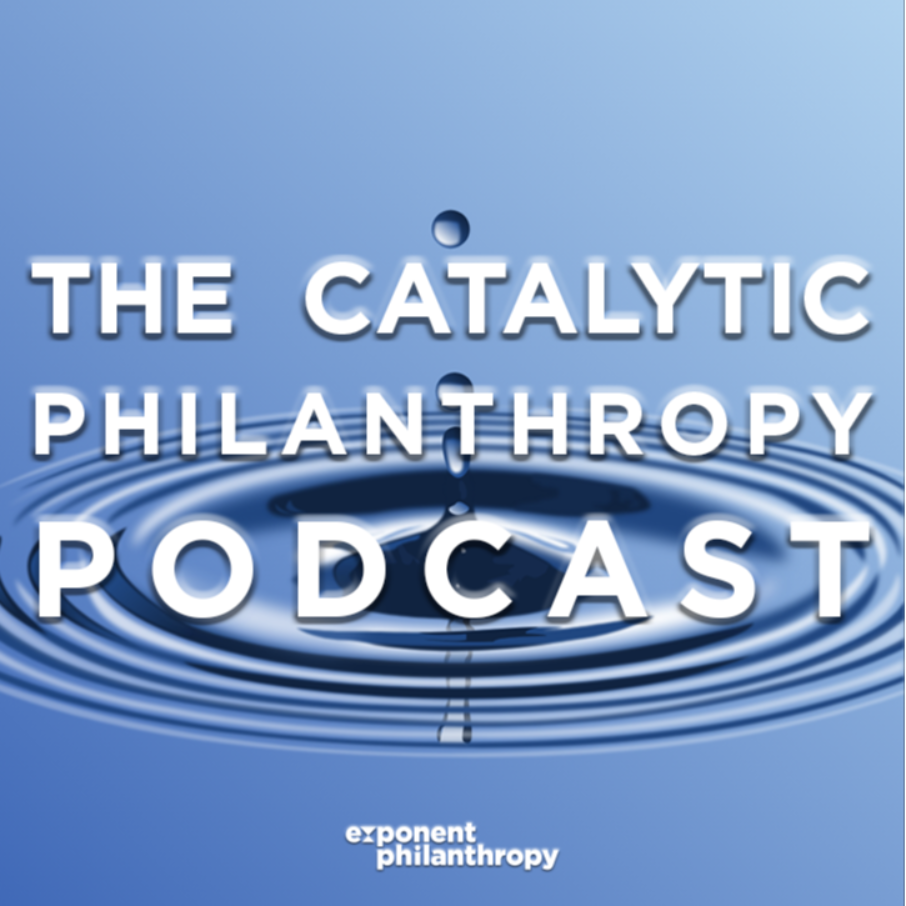
10.2K
Downloads
55
Episodes
-Creative Funders Explore Their Art and Craft- Each month, meet some of the most creative, resourceful, and risk-taking funders in the country. These individuals are creating a new kind of philanthropy, shifting from the transactional to the transformational.
-Creative Funders Explore Their Art and Craft- Each month, meet some of the most creative, resourceful, and risk-taking funders in the country. These individuals are creating a new kind of philanthropy, shifting from the transactional to the transformational.
Episodes
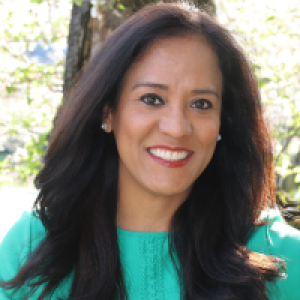
Tuesday Oct 22, 2024
Tuesday Oct 22, 2024
Staff and board of the Crimsonbridge Foundation know that scholarship dollars have long played an important and familiar role to support student participation in tuition-based education. They've invested in building the capacity of schools from kindergarten through college to create welcoming, inclusive institutions that foster the sense of belonging needed to support student success. So when they looked for solutions to increase the participation of Hispanic students in Catholic schools, they proposed outreach, engagement, and communication strategies that went beyond traditional scholarships. These "beyond the grant" strategies not only increased school capacity, but student enrollment and family engagement.
***
Danielle M. Reyes is President and CEO of the Crimsonbridge Foundation. She has led the strategic development of the foundation’s operations and programs since its founding in 2015, and guides the philanthropic strategies of its affiliates Crimsonbridge Group and Crimsonbridge LLC. At Crimsonbridge, she has co-created an innovative entrepreneurial philanthropy model that integrates inclusion, equity, and communications strategies to foster authentic community-based partnerships that drive change in Education, Leadership Development, Communications Capacity Building, and the Environment. Danielle serves as the Board President for the DC Bar Foundation and has contributed her expertise to local organizations and national boards including the Taproot Foundation and Asian Americans Pacific Islanders in Philanthropy.
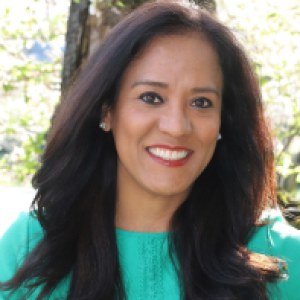
Tuesday Aug 27, 2024
Tuesday Aug 27, 2024
Danielle Reyes, President and CEO of the Crimsonbridge Foundation, observes that many times, discussions about improving philanthropy call upon foundations to minimize their presence and agency. Danielle invites us to take a more complex view of foundations' role. In a series of Podcasts, she reminds us that money alone is not enough to make deeper, longer-lasting systems change. She observes that social sector organizations want their funders to do more - to step up and take actions that draw upon foundations' unique abilities, assets, and position. In Part 2, Danielle shares an example how the foundation goes far beyond grants to break through barriers to change, in the field of leadership development for nonprofit leaders of color.
***
Danielle M. Reyes is President and CEO of the Crimsonbridge Foundation. She has led the strategic development of the foundation’s operations and programs since its founding in 2015, and guides the philanthropic strategies of its affiliates Crimsonbridge Group and Crimsonbridge LLC. At Crimsonbridge, she has co-created an innovative entrepreneurial philanthropy model that integrates inclusion, equity, and communications strategies to foster authentic community-based partnerships that drive change in Education, Leadership Development, Communications Capacity Building, and the Environment. Danielle serves as the Board President for the DC Bar Foundation and has contributed her expertise to local organizations and national boards including the Taproot Foundation and Asian Americans Pacific Islanders in Philanthropy.
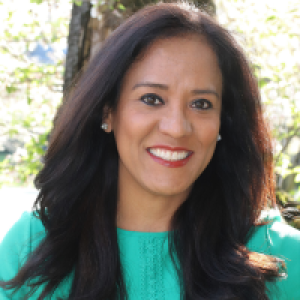
Thursday Jul 18, 2024
Thursday Jul 18, 2024
Danielle Reyes, President and CEO of the Crimsonbridge Foundation, observes that many times, discussions about improving philanthropy call upon foundations to minimize their presence and agency. Danielle invites us to take a more complex view of foundations' role. In a series of Podcasts, she reminds us that money alone is not enough to make deeper, longer-lasting systems change. She observes that social sector organizations want their funders to do more - to step up and take actions that draw upon foundations' unique abilities, assets, and positions. In Part 1, Danielle explores why the Crimsonbridge Foundation uses all the assets and powers. Parts 2 and 3 highlight examples of how Danielle's team goes far beyond grants to break through barriers to change, in two specific focus areas - leadership development for nonprofit leaders of color, and first-generation college student success.
***
Danielle M. Reyes is President and CEO of the Crimsonbridge Foundation. She has led the strategic development of the foundation’s operations and programs since its founding in 2015 and guides the philanthropic strategies of its affiliates Crimsonbridge Group and Crimsonbridge LLC. At Crimsonbridge, she has co-created an innovative entrepreneurial philanthropy model that integrates inclusion, equity, and communications strategies to foster authentic community-based partnerships that drive change in Education, Leadership Development, Communications, Capacity Building, and the Environment. Danielle serves on the Board of the DC Bar Foundation and has contributed her expertise to local organizations and national boards including the Taproot Foundation and Asian Americans Pacific Islanders in Philanthropy.
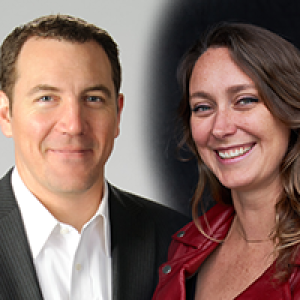
Friday May 24, 2024
Friday May 24, 2024
Some say the highest and best use of philanthropy is to drive innovation and creativity. Champions of this role emphasize foundations' and donors' freedom to support - with grants and also connections - entrepreneurial people seeking to develop, test, and scale new approaches to the toughest issues. In this Podcast, meet Brett Howell and Kirsten Midura, the founder and lead staff of the Howell Conservation Fund (HCF). HCF is a lean funder dedicated to supporting innovation and market-based approaches in the environmental field. Across the U.S. and globally, nonprofit leaders and entrepreneurs have visionary ideas that can take social and environmental problem-solving to new levels. Often, these leaders cannot find investors willing to back a new approach. Brett and Kirsten remind us that lean funders are perfectly positioned to be "the first funder." Get inspired about driving breakthrough innovation among your grantee partners.
***
Related Blogs:
https://www.exponentphilanthropy.org/blog/network-weaving-a-key-factor-in-my-philanthropic-success/
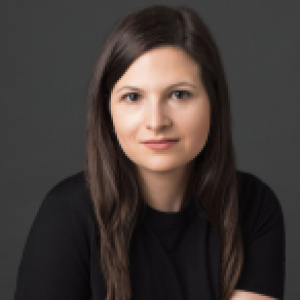
Thursday Apr 18, 2024
Thursday Apr 18, 2024
It was a win-win solution, hiding in plain sight. Community colleges could serve more parents with young children, if parents had easier access to affordable childcare. Head Start Centers, for their part, want to serve more families. Idea: If more community colleges could host Head Start Centers right on their campuses, eligible parents would have immediate access to free child care, colleges could better tap into a population of potential students, and Head Start centers could get free space and access to aspiring teachers. Abigail Seldin, founder of the Seldin/Haring-Smith Foundation, did what leanly staffed foundations are perfectly positioned to do - she saw the potential of a great idea, and took the initiative to act on it. Abigail brought together the Association of Community College Trustees and the National Head Start Association, and engaged another small funder, the ECMC Foundation, to provide a modest but critical grant to design ways for more Head Start Centers to locate to community college campuses. The idea is already attracting enthusiastic support from community colleges, Head Start programs, Federal Government agencies, and other potential partners. In this podcast, Abigail explores how the idea and vision emerged, and the steps her small foundation took to help make it a reality.
***
Abigail Seldin is CEO of the Seldin/Haring-Smith Foundation (SHSF). Under her leadership, SHSF seeded Kids on Campus, a new effort with the National Head Start Association and Association of Community College Trustees to relocate Head Start centers to community college campuses. At SHSF, Abigail also launched a partnership with Getty Images to create new stock photos of today’s college students and published new data on transit inaccessibility that has generated bipartisan legislation. Abigail co-founded and sold a tech start-up and studied at Oxford as a Rhodes Scholar.
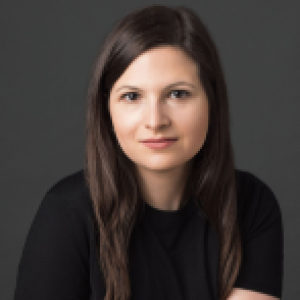
Thursday Apr 18, 2024
Thursday Apr 18, 2024
It was a win-win solution, hiding in plain sight. Community colleges could serve more parents with young children if parents had easier access to affordable childcare. Head Start Centers, for their part, want to serve more families. Idea: If more community colleges could host Head Start Centers right on their campuses, eligible parents would have immediate access to free child care, colleges could better tap into a population of potential students, and Head Start centers could get free space and access to aspiring teachers. Abigail Seldin, founder of the Seldin/Haring-Smith Foundation, did what leanly staffed foundations are perfectly positioned to do - she saw the potential of a great idea and took the initiative to act on it. Abigail brought together the Association of Community College Trustees and the National Head Start Association, and engaged another small funder, the ECMC Foundation, to provide a modest but critical grant to design ways for more Head Start Centers to locate to community college campuses. The idea is already attracting enthusiastic support from community colleges, Head Start programs, Federal Government agencies, and other potential partners. In this podcast, Abigail explores how the idea and vision emerged, and the steps her small foundation took to help make it a reality.
***
Abigail Seldin is CEO of the Seldin/Haring-Smith Foundation (SHSF). Under her leadership, SHSF seeded Kids on Campus, a new effort with the National Head Start Association and Association of Community College Trustees to relocate Head Start centers to community college campuses. At SHSF, Abigail also launched a partnership with Getty Images to create new stock photos of today’s college students and published new data on transit inaccessibility that has generated bipartisan legislation. Abigail co-founded and sold a tech start-up and studied at Oxford as a Rhodes Scholar.
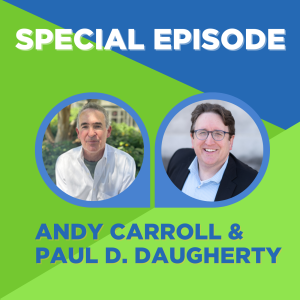
Tuesday Apr 02, 2024
Tuesday Apr 02, 2024
Any person at a leanly staffed foundation, no matter their role, can embrace Catalytic Leadership in Philanthropy (CLIP).
In this special podcast episode, Exponent Philanthropy CEO Paul D. Daugherty and senior advisor, producer, and host of the Catalytic Philanthropy Podcast, Andy Carroll discuss this critical mindset and practice, how it fills a gap in the space, and how anyone can begin to adopt CLIP.
***
Andy Carroll is a senior advisor at Exponent Philanthropy and the producer and host of the Catalytic Philanthropy Podcast. Learn more about Andy Carroll »
Paul D. Daugherty is the CEO of Exponent Philanthropy. Learn more about Paul D. Daugherty »
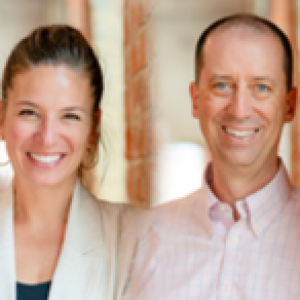
Thursday Mar 07, 2024
Thursday Mar 07, 2024
In Part 3 of our Podcast exploring the catalyst role of the Earl & Kathryn Congdon Foundation in the economic revitalization of High Point, North Carolina, foundation staff Megan Oglesby and Joe Blosser chronicle the creation of a prototyping and training facility called the Generator. Furniture design and craftmanship has had a long history in High Point. Though manufacturing shifted to other countries, many professional designers and skilled craftspeople continue to reside in the area. To support these creatives and their businesses, the Chamber of Commerce, Business High Point, developed a space downtown for furniture design prototyping and training. Learn how this unique facility contributes to the larger effort, co-led by the Congdon Foundation, to start, scale, and grow businesses, create jobs, and restore dynamism to High Point all through the year.
***
Megan Oglesby is the Executive Director of the Earl and Kathryn Congdon Family Foundation based in High Point, NC. The foundation board empowers Megan to fully immerse herself in the High Point community so that she is able to create and maintain strong relationships with nonprofit organizations and community leaders, to understand and articulate evolving needs in the city and region. Prior to joining the foundation, Megan held senior positions at Business High Point - Chamber of Commerce. Megan is a High Point native and currently resides in High Point with her husband and three children.
Joe Blosser serves as the Chief Impact Officer of the Earl and Kathryn Congdon Family Foundation. He previously served as the founding Executive Director of the Center for Community Engagement and Associate Professor of Religion and Philosophy at High Point University. He holds a Ph.D. from the University of Chicago, and is an ordained minister in the Christian Church (Disciples of Christ).
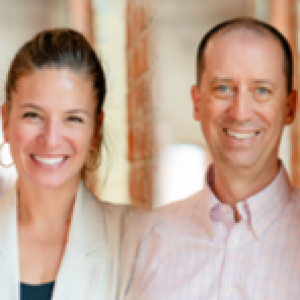
Friday Feb 16, 2024
Friday Feb 16, 2024
In Part 2 of our Podcast exploring the catalyst role of the Earl & Kathryn Congdon Foundation in the economic revitalization of High Point, North Carolina, foundation staff Megan Oglesby and Joe Blosser describe a key part of the project, a coworking space called the Commons. Megan and Joe share how the Commons was designed to promote networking and idea generation, why the foundation and its partners decided to make access free, and the programming offered by the Chamber of Commerce to meet the needs of both nonprofit and for-profit startups. Learn how the scale and design of the Commons evolved beyond the original plan, and how the Congdon Foundation was clear about its specific role - to do what the for-profit sector cannot do to help entrepreneurs start and grow businesses.
***
Megan Oglesby is the Executive Director of the Earl and Kathryn Congdon Family Foundation based in High Point, NC. The foundation board empowers Megan to fully immerse herself in the High Point community so that she is able to create and maintain strong relationships with nonprofit organizations and community leaders, to understand and articulate evolving needs in the city and region. Prior to joining the foundation, Megan held senior positions at Business High Point - Chamber of Commerce. Megan is a High Point native and currently resides in High Point with her husband and three children.
Joe Blosser serves as the Chief Impact Officer of the Earl and Kathryn Congdon Family Foundation. He previously served as the founding Executive Director of the Center for Community Engagement and Associate Professor of Religion and Philosophy at High Point University. He holds a Ph.D. from the University of Chicago, and is an ordained minister in the Christian Church (Disciples of Christ).
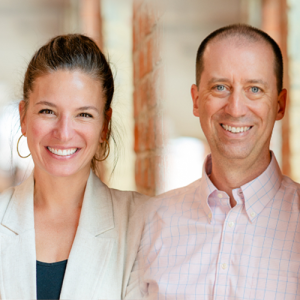
Wednesday Feb 07, 2024
Wednesday Feb 07, 2024
Small, place-based foundations operate in almost every rural region, town, and city in the U.S. Many of these communities have experienced a dramatic loss of jobs in the past decades. As local foundations make grants to meet immediate needs, their leaders consider whether the foundations might also play a part in rejuvenating local economies and lifting opportunity and hope for the residents of their towns and regions. In this podcast, meet the staff of a foundation of two committed to doing just that - nurturing economic development in a city that once flourished with manufacturing jobs that sustained a large middle class. Megan Oglesby and Joe Blosser of the Earl & Kathryn Congdon Foundation in High Point, North Carolina share ways they are devoting the foundation's many assets to help small businesses start, scale, and grow. Megan and Joe explore how a leanly staffed foundation can use its unique role and position to do what government and business cannot do to nurture economic development - by providing long-term strategic thinking and investment, taking higher risks, and supporting activity essential to business development that doesn't offer profit, such as training, equipment, space for entrepreneurs, and networking.
**
Megan Oglesby is the Executive Director of the Earl and Kathryn Congdon Family Foundation based in High Point, NC. The foundation board empowers Megan to fully immerse herself in the High Point community to create and maintain strong relationships with nonprofit organizations and community leaders, to understand and articulate evolving needs in the city and region. Before joining the foundation, Megan held senior positions at Business High Point - Chamber of Commerce. Megan is a High Point native and resides in High Point with her husband and three children.
Joe Blosser serves as the Chief Impact Officer of the Earl and Kathryn Congdon Family Foundation. He previously served as the founding Executive Director of the Center for Community Engagement and Associate Professor of Religion and Philosophy at High Point University. He holds a Ph.D. from the University of Chicago and is an ordained minister in the Christian Church (Disciples of Christ).
